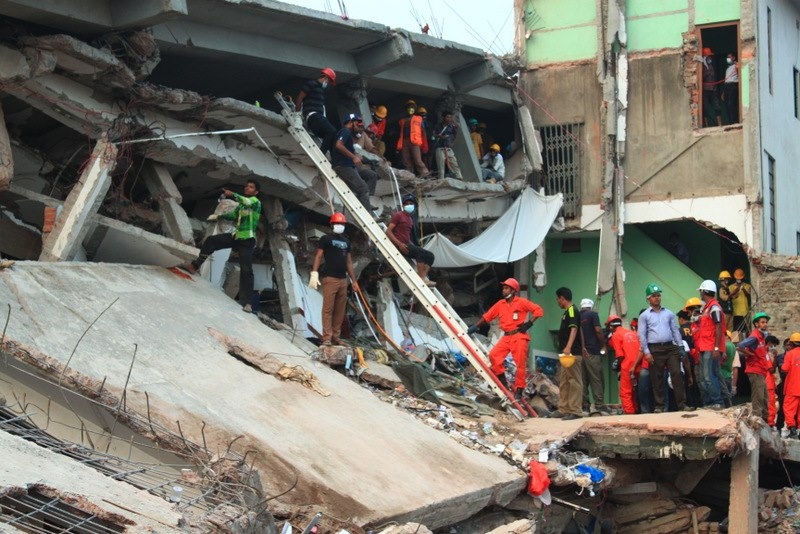10 years Rana Plaza
Exactly a decade ago, the world witnessed a terrible tragedy! Rana Plaza, an eight-story garment factory in Bangladesh, collapsed, causing more than 1,100 deaths. This is one of the worst industrial catastrophes in our history and is the consequence ofa logic of maximum profit for a minimum cost. The hazardous and inhuman working conditions under which millions of people work daily in the fashion industry have been exposed.
 © Sharat Chowdhury
© Sharat Chowdhury While many brands are committed to improving working conditions in their supply chains, much remains to be done. All of us have a role to play in fostering more ethical practices in the fashion industry. We can learn more about the brands we buy and support those who take action to improve their workers' working conditions.
However, it is crucial for political and legislative action to follow. I therefore support the initiative of the European Commission for a transversal initiative for Corporate Sustainability Due Dilligence (CSDD). Because, of course, the issue is much broader than the fashion industry and social rights. From an environmental standpoint, it suffices to recall that 80 to 90 % of the environtal harm caused by products sold in the EU occurs outside the Union, where EU environment legislation does not apply. The CSDD-directive aims to address this situation. Its main objective is to minimize the impact of European companies or companies operating in the EU on human and social rights and on the environment, including biodiversity and climate, throughout the value-chain. By taking such an initiative, the Commission confirms its commitment to preventing the adverse effects that EU economic activity can have abroad.
I welcome this ambition but, as Minister for the Environment and Climate, I insist that without effective and comprehensive environmental and climate protection, we would be missing an historic opportunity for political ecology. I therefore addressed this issue at the Environment Council on 24 October 2022. Half a dozen member states, including Germany and France, supported my statement.
Currently, the directive is being negotiated, and there is a great deal of debate regarding the extent to which companies should be held accountable for their own practices and those of their suppliers. There is also the question as to whether or not this legislation should encourage companies to account for their direct and indirect contributions to the climate crisis. The EU Council adopted a general approach on 1 December 2022. In the European Parliament, the directive is due to be voted on in the Legal Affairs Committee on 25 April. The text should then be submitted to the Parliament's plenary towards the end of May. The trialogues will then take place, likely after the Summer.
I am following the development of this dossier with great interest, because it is undeniable that we must commit ourselves to a European economy that respects rights and the environment, even outside its geographical borders, and prevent such disasters from ever happening again.


